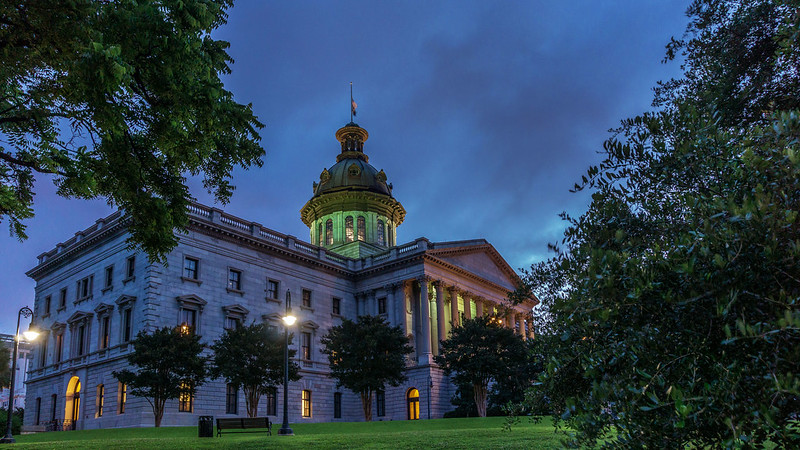
As the new year begins and most state lawmakers prepare to start new legislative sessions, South Carolina stands as one of the states most in need of rate-reducing tax reform in 2020.
Yes, South Carolina has been drawing people from other states around the country because the Palmetto State has a lot going for it. Yet South Carolina’s relative economic success has been occurring despite the state’s uncompetitive tax code, which imposes the region’s highest income tax rate on individuals, families, and small businesses.
Americans for Tax Reform sent a letter to South Carolina lawmakers today urging legislators to make 2020 the year they pass tax reform that significantly reduces the Palmetto State’s personal and corporate income tax rates. South Carolina’s 7.0% top personal income tax rate, which also applies to thousands of small businesses that file under the individual income tax system, stands above neighboring Georgia’s 5.75% top rate and North Carolina’s 5.25% flat income tax rate. South Carolina’s disadvantage relative to nearby Florida and Tennessee, to states with no income tax, is even greater.
In addition to bringing down the corporate and personal income tax rates, there are other changes that South Carolina lawmakers could include in a pro-growth tax reform package, such as a cut to, or elimination of the state’s business license tax.
The political stage has arguably never been more optimally set for lawmakers in Columbia to get much-needed tax reform done. Governor Henry McMaster (R), a Taxpayer Protection Pledge signer, has made it clear he would like to see lawmakers send rate-reducing tax reform to his desk. Speaker Jay Lucas and other key lawmakers have also expressed an interest in making it so South Carolina no longer imposes the region’s highest income tax rate. On top of all of that, the state has a nearly $2 billion budget surplus, approximately half of which is reoccurring dollars.
If South Carolina lawmakers can’t get rate-reducing tax reform across the finish line this year, it’s hard to see when it will happen. In addition to enacting tax relief in 2020, the letter sent by ATR today also urges Palmetto State lawmakers to approve the sale of Santee Cooper, the state-owned utility that has racked up billions of dollars in debt, and to do so in a manner that will ensure ratepayers are not on the hook for that debt.
To learn more about how Santee Cooper accrued billions of dollars in debt, and why selling the utility is the only way to ensure ratepayers are not saddled with this debt, check out the new report released this week by the Palmetto Promise Institute.

